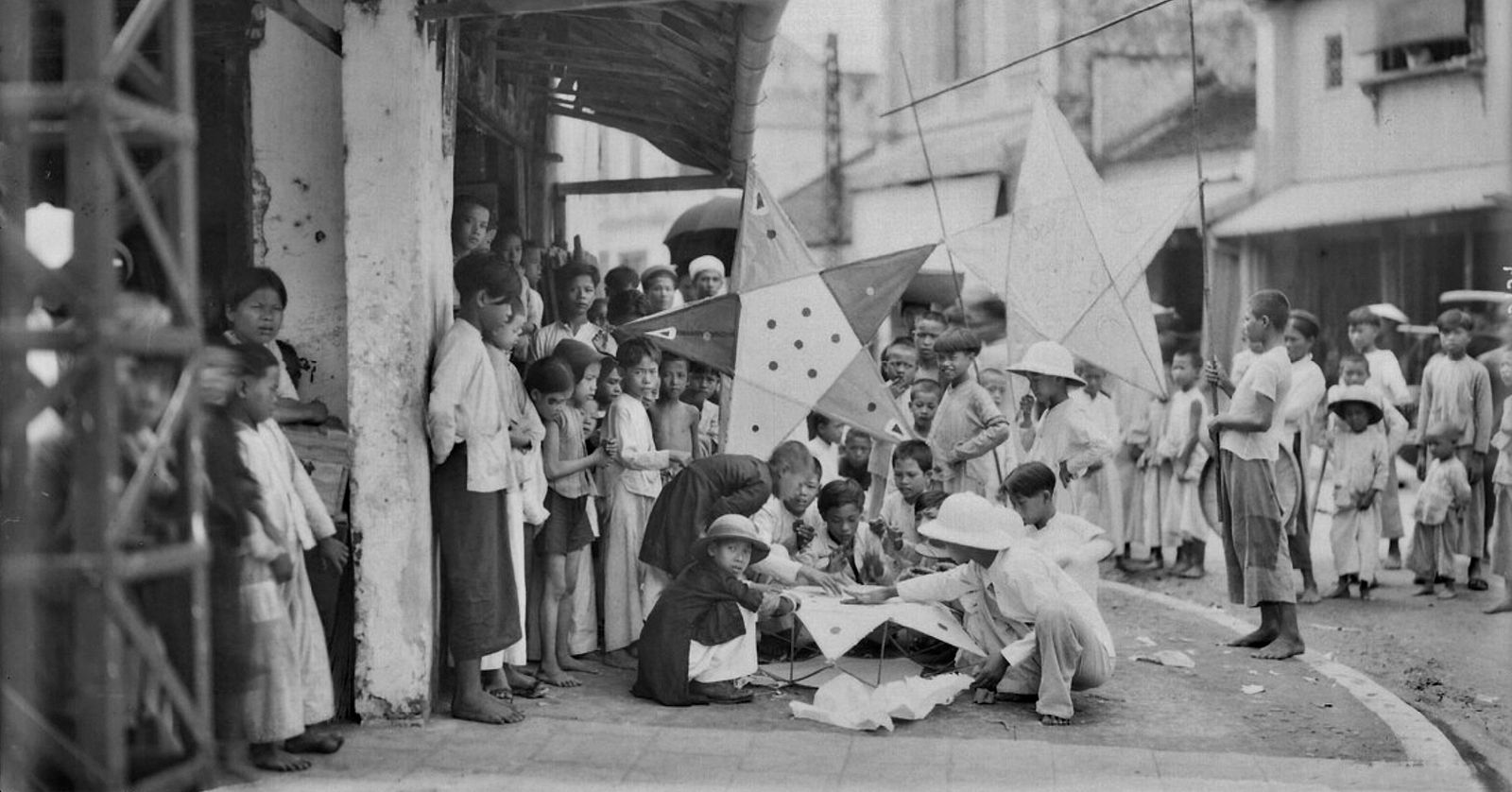This evening, as Saigoneers continue their many Tet preparations and young revellers head out for a night on the town, Ong Tao is packing his bags for his annual trip to heaven.
Known in English as the Kitchen God, Ong Tao is a pretty eccentric character. He sticks strictly to rubber boots and shorts under his áo dài, and in the final week of the lunar year, he rides a carp to heaven to report the news from earth.
For all his oddities, the story of this venerated figure is not so lighthearted. In fact, Ong Tao himself is the amalgamation of three separate figures – Tho Dia, Tho Cong and Tho Ky – who oversee matters of the family, business and kitchen, respectively.
There are several versions of this legend, according to Doi Song & Phap Luat, but the basic plot is generally agreed upon: once upon a time, there was a poor couple who often struggled to make ends meet. The husband, a woodcutter, grew bitter about their circumstances and took up drinking to ease his sorrow and later began to beat his wife.
Fearing for her safety, the woodcutter’s wife fled the house, wandering aimlessly through the forest until she came upon the house of a hunter. The man took her in and gave her a place to stay. Over time, the two became husband and wife. They lived together happily, and the wife was glad to be rid of her former husband.
Meanwhile, the woodcutter regretted his actions. Depressed and alone, he set out in search of his wife to make amends.
One day, on the 23rd of the final lunar month, the wife was burning votive paper in the front yard when a beggar turned up, asking for food. In no time at all, the wife recognized her former husband, who had lost everything. Taking pity upon him, she brought him some rice and money but, fearful of what her new husband might think, tried to conceal this from the hunter.
When the hunter came home, however, this did not go over well. Jealous and angry, he began to give his wife a hard time and she, overcome with grief at the state of her former husband and depressed by her current husband’s response, committed suicide by jumping into the kitchen fire.
Devastated at having caused this mess, the woodcutter soon followed, and the hunter, realizing he might have overreacted to the situation, also killed himself. For their faithfulness, the trio was thus assigned to oversee affairs of the home, business and kitchen; it is for this reason that traditional Vietnamese clay stoves have three prongs upon which to set cooking pots and pans.
Over time, the three gods, collectively known as Tao Quan, were fused into Ong Tao, a single figure in rubber boots and a dragonfly-winged hat. On the 23rd day of the last month of the lunar year, Ong Tao mounts a carp and rides to heaven to report the goings-on of the living. The reason for the carp is yet another story, however the short version is that this fish is believed to transform into a dragon, which will take Ong Tao skyward.
While there are various ways in which Vietnamese across the country see off Ong Tao on his journey, most everyone burns votive paper in honor of the deity, usually in the form of paper clothing or other essentials Ong Tao might need on his trip. In the north, people will also pay their respects to Ong Tao by releasing three carps into the water in honor of the three figures from the original story, according to VTC. Down south, families will wait until the evening, after all meals have been cooked, before burning their offerings. It is also customary to replace the household stove at this time.
While this is a long-standing tradition, Professor Tran Lam Bien told VietnamNet that traditions have begun to change in recent years, a fact which he laments. Rather than the traditional offerings – such as xôi chè, or sweet sticky rice, which is offered in hopes Ong Tao will have sweet things to say when reporting on your family – nowadays some people spare no expense, offering Ong Tao things like votive paper iPhones and BMWs for his journey to heaven.
Regardless of what you offer, however, Ong Tao is obligated to report all your business in heaven, good and bad. We’re not sure whether the additional votive paper perks will help him put in a good word for you, but if there’s one wish we have for Ong Tao, it’s that the traffic isn’t as bad heading to heaven as it is heading to Tan Son Nhat.
















